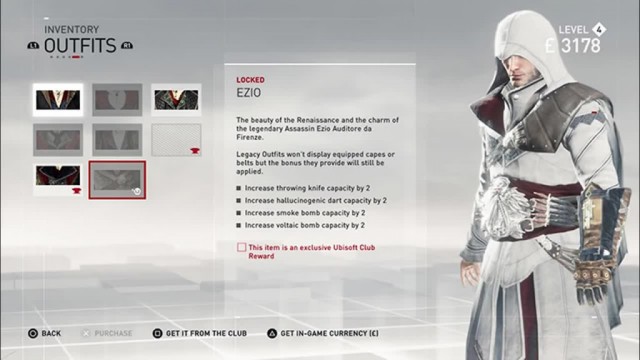

Project Cars provides one of the most realistic and addicting racing simulations that we’ve ever played, but may lose many gamers due to its lack of tutorials and basic training.
Some games are built from the ground up to appeal to the mass market. Considering how much it costs to develop a game (AAA or indie), it makes sense to develop a product that can be accessible to the largest audience of consumers possible. Project Cars wastes no time hiding the fact that this crowdfunded racing sim does not follow those rules.
Slightly Mad Studios, the developers behind Need for Speed: Shift, have delivered (after a series of delays) one of the most difficult and rewarding racing sims we’ve ever had the pleasure of test driving. The racing game is jam packed with content and offers gearheads and fans of challenging sports games the opportunity to feel like they are really behind the wheel of dozens of different cars.
As gamers might expect, there isn’t much plot to consider in Project Cars. The game contains a great career mode that provides a calendar of increasingly difficult races, but the story is about what players would expect from most sports games. Project Cars is all about the realistic racing simulations and doesn’t devote much time to developing a cast of supporting characters in the player’s pit crew. Gamers create a racer and control their career career as he or she earns sponsors and becomes a modern racing legend. It may sound familiar, but a change to the usual racing game rewards structure makes the career mode feel very different.
Unlike most racing games, Project Cars doesn’t force players to unlock a garage full of cars. At the start of career mode, players can choose to begin their career on 125cc karts or the highest racing class available. The three tiers of career mode can be divided into kart racing, GT events, and (at the highest level) prototype racing for the most skilled drivers. The sheer amount of options can be very intimidating at first, especially because the game lacks a very structured tutorial (a recurring problem), but the freedom from working towards unlockables allows players to concentrate on what matters most: the races.
Some goal-oriented gamers may be annoyed by the game’s lack of structure, but what Project Cars lacks in tiered rewards, it makes up for in immersive driving simulations. The fleet of available vehicles is very impressive, but picky car fans might not find absolutely everything that they are looking for. The game doesn’t have Ferraris or Porsches, but there is plenty of other power to take control of.
Players have three other modes to explore outside of career. Solo Play and Online offer similar options, with the main difference being racing against AI in Solo versus other players in Online. These two modes both give players the opportunity to create any kind of race they would like to participate in and customize the competition’s cars, track, length, and environment.
The last mode, Driver Network, allows players to compete for the top time on tracks in an asynchronous setting. Racers take on the same track in the same car, under the same conditions. However, players who jump straight to this mode without mastering things in career mode first will likely be a little frustrated that the top times for the event are insanely faster than theirs. The amount of expertise needed to excel in Project Cars is most evident in these instances.
Racers with the motivation to train hard and do their homework will fall in love with these challenges. In order to cross the finish line with an impressive course time, players can’t just restart the race when they take a turn poorly the way gamers are used to doing in other racing sims. This functionality is available, but racers don’t learn anything from it. Instead, players are rewarded with information by finishing the race and memorizing the difficult turns, the slick spots on the road, the way that a new vehicle reacts when it has to downshift quickly. Players take note of all of these quirks and adjust the settings of their car or their plan of attack for each turn in order to gain an advantage.
Adjusting tire pressure, managing fuel load, or tweaking gear timing can make all the difference between breaking a record or falling in with the rest of the pact. This is where the game both shines and suffers from its steep learning curve. The intricacies of car tuning take the simulation to the next level and make it stand out from its competitors, but the game does not offer much help to non-gearheads. Gamers are able to read about how each change should impact their cars in-game, but the only way to really master the best tune ups (without already being an engineer) is to watch tutorials online. The lack of a better in-game crash course in car settings is one of Project Cars‘ few downsides.
Once the game takes hold of players, though, they will find themselves taking extra practice laps before each race in an attempt to master the course and gain any advantage possible over the other racers (AI or real). The in-game weather forecast for the day will become more than just another nice little touch of immersion. Whether or not there are clouds in the forecast can dramatically impact the way a driver wants to adjust the settings for a race. The in-game weather systems are gorgeous and definitely deliver on an aesthetic level, but the impact they have on performance is far more meaningful than anything we’ve seen in past racing games (or other sports games, for that matter).
A review of Project Cars can’t be complete without praising the game’s phenomenal sound effects. Gamers with souped up sound systems will benefit most from these, but even on a regular television’s built-in speakers the car’s sounds are amazing. Each car has a completely unique hum and the sound of shifting into sixth gear or slamming on the brakes at a sharp turn are what really make drivers feel like they are actually inside these incredible machines.
Project Cars is most definitely not the game for someone who wants to chase down experience points and unlock new items on the way through a game. Players who just want full access to an incredibly difficult and realistic driving simulation will find all that they are looking for with this one, though.
Project Cars is now available for PC, PS4, and Xbox One. Game Rant was provided a PS4 copy for this review.




 Working Fix For Dark Souls II: Scholar of the First Sin PC/non Xbox 360 Controllers Issue
Working Fix For Dark Souls II: Scholar of the First Sin PC/non Xbox 360 Controllers Issue Dead Space 3 Walkthrough
Dead Space 3 Walkthrough Evolve Guide: How to Play as the Kraken
Evolve Guide: How to Play as the Kraken FIFA 16: more effective dribbling, new skill moves
FIFA 16: more effective dribbling, new skill moves Gamify Your Life With A Few Clever iPhone Apps
Gamify Your Life With A Few Clever iPhone Apps